Should Christians celebrate the Old Testament Passover, or the modern “Seder”? Are we to go backwards to Old Testament animal sacrifices, or are we to look to the Lamb’s sacrifice (Jesus Christ on the Cross), and forward to His coming again? What about the book of Hebrews? Does it allow for Christians to return to an OT passover??
Click on the link below to understand WHY “Easter” is correct in Acts 12:4, and using “Passover” in a post-resurrection context is incorrect! (Once again, the modern translators got it wrong!)
See this site for a full explanation: http://www.kjvtoday.com/home/easter-or-passover-in-acts-124
“And when he had apprehended him, he put him in prison, and delivered him to four quaternions of soldiers to keep him; intending after Easter to bring him forth to the people.” ~ Acts 12:4
“Purge out therefore the old leaven, that ye may be a new lump, as ye are unleavened. For even Christ our passover is sacrificed for us.” ~ 1Corinthians 5:7
“Christ our passover” = Easter!
{Click on the image above to enlarge in a new window, and to download}
- John 2:13: “And the Jews’ passover was at hand….” (και εγγυς ην το πασχα των ιουδαιων)
- John 11:55: “And the Jews’ passover was nigh at hand….” (ην δε εγγυς το πασχα των ιουδαιων)
The fact that John writes, “Jews’ Pascha (πασχα των ιουδαιων)” indicates that there was a need to qualify the word “Pascha” for the immediate audience of John’s Gospel. Such a phrase would be redundant unless there were already a distinction between a “Jew’s” Pascha and “another” Pascha. Apparently within the first century, Christians had already appropriated the word “Pascha” to refer to the Christian celebration of the resurrection.
“Whether “Πάσχα” should be Passover or Easter at Acts 12:4 must be determined by discerning who is using the word in this instance. If the word is used by a Jew, then the word would mean Passover. If the word is used by Herod, then the word would mean Passover, or perhaps a pagan festival (although the possibility of “Πάσχα” referring to a pagan festival has no basis in history or etymology). Contrary to what many believe, it is neither the Jews nor Herod who is using the word “Πάσχα” at Acts 12:4. It is actually Luke, the Christian narrator of Acts, who is using the word “Πάσχα” to describe the timeline of events for his Christian readers in the latter first century, many of whom were Gentile Christians. At the time of Luke’s writing, “Πάσχα” at Acts 12:4 was no longer the “Passover”, but “Easter“. When Luke speaks in Acts 12:4 as narrator, he is using words according to the mutual Christian perspective of himself and his readers. This is evident because he uses the word “church” (εκκλησία) at Acts 12:1 to refer to Christians. This is a dignifying Christian word to refer to the congregation of those who are called out by God. Neither Herod nor the Jews would have referred to these rebels as “the called-out ones”. However, when coming from a Christian narrator for a Christian audience, the word “εκκλησία” carries a Christian meaning. The same goes for the word “πασχα”. It may well be that Herod and the Jews had no concern or knowledge about Easter. Although Herod and the Jews were waiting for the ‘Jewish Passover‘, Luke uses “πασχα” according to its Christian meaning of “Easter” to explain the timeline of events to his Christian readers. That is why “πασχα” is ‘Easter’ in Acts 12:4.”
~ See Also:
https://answersingenesis.org/holidays/easter/is-the-name-easter-of-pagan-origin/
~ Or ~
https://brandplucked.webs.com/easter.htm
Jesus clearly transitioned the Old Testament “passover” supper into the “communion” supper of the New Testament!
“And he said unto them, With desire I have desired to eat this passover with you before I suffer: 16 For I say unto you, I will not any more eat thereof, until it be fulfilled in the kingdom of God. 17 And he took the cup, and gave thanks, and said, Take this, and divide it among yourselves: 18 For I say unto you, I will not drink of the fruit of the vine, until the kingdom of God shall come. 19 And he took bread, and gave thanks, and brake it, and gave unto them, saying, This is my body which is given for you: this do in remembrance of me. 20 Likewise also the cup after supper, saying, This cup is the new testament in my blood, which is shed for you.” (Luke 22:15-20)
“For as often as ye eat this bread, and drink this cup, ye do shew the Lord’s death till he come.” (1Corinthians 11:26)
There are those who claim that “Easter” is a pagan holiday and is also known as “Ishtar”. That is complete nonsense!
Easter and Ishtar have nothing in common. However, the problem that we have, today, is that people are intertwining eggs and other objects into Easter, which those things should not be observed, for they are a practice of pagan rituals.
Trying to keep the Old Testament “Passover” is just absurd, for one cannot keep it without a tabernacle/temple, without an earthly priest, and without being in Jerusalem. (cp. Deuteronomy 16:1-2; 2Chronicles 6:6; Exodus 23:17; Deuteronomy 16:16; Exodus 34:22-23; 2Chronicles 35:11; Ezra 6:19-20)
Today, those who claim they are “keeping Passover” are liars. They teach others to violate God’s laws concerning His feasts by HOW they are to be kept. These people who claim they are keeping the feast of God will speak against those who don’t— also accusing them of teaching others to brake the commandments— however they are doing that very thing.
Matthew 5:19 ~ “Whosoever therefore shall —>break one<— of these least commandments, —>and shall teach men so,<— he shall be called the least in the kingdom of heaven: but whosoever shall do and teach them, the same shall be called great in the kingdom of heaven.”
Again, NO-ONE, today, can keep the feast Scripturally — being outside of Jerusalem, without an earthly, Aaronic Priest. And, you CAN’T kill your lamb IN YOUR GATE (home place – Deuteronomy 16:5-6)… And, it has to be PURE, without blemish (Exodus 12:5). So, buying your leg of lamb at the store is not even close to being Biblical.
Jesus establishes what is called “the Lord’s supper” also known as “communion”, or “the Lord’s table”, which is to REMEMBER the Lord’s death, till He comes again. This is in REPLACEMENT of the Passover, for the True Lamb was slain, and wonderfully He arose from the grave! And, this resurrection is known, today, as Easter.
TAKE NOTE!!
- Was Willian Tyndale, Myles Coverdale, the Bishops Bible, the Matthews Bible, The Great Bible, Geneva Bible and the King James Bible supporting the “pagan feast” idea?
- Why is it that William Tyndale used Easter 23 times, The Great Bible 15 times, Coverdale Bible 24 times, Matthews Bible 10 times, Bishops Bible 2 times, the old, Anglo Saxon Gospel of Matthew 3 times, Geneva Bible 1 time, and the King James Bible 1 time?
- “Easter” in the Old Anglo Saxon (old English) dictionary is for the word Passover.
- The Oxford English Dictionary lists many early English literary sources that employed the word Easter to refer to the Resurrection.
- Easter is derived from the word East, which when adding the suffix “er” it becomes action. The sun rises in the East and Jesus is called
“the Sun of righteousness” in Malachi 4:2 — which, as indicated in Matthew 24:27— He is coming back, out of the East. The wise men came from the East to Jerusalem, then to Bethlehem where the star was. Revelation 2:28 states “And I will give him the morning star”. And Revelation 22:16 says, “I Jesus have sent mine angel to testify into you these things in the churches. I am the root and offspring of David, and the bright and morning star.” While 2Peter 1:19 says, “We have also a more sure word of prophecy; whereunto ye do well that ye take heed, as unto a light that shineth in a dark place, until the day dawn, and the day star arise in your hearts:”
I reject the idea that Easter is derived from Ishtar, but rather, that it is a word from old, used to describe the Resurrection of Christ— WHO IS our Passover. (1Corinthians 5:7)
ALSO, the word “Passover” was not used until William Tyndale translated the Old Testament— he is the first user of the word. Tyndale used “Easter lamb” for the Greek word “pascha” (Passover). Pascha means a sacrifice of an animal.
PRAISE GOD, THE TRUE LAMB HAS BEEN SLAIN AND I DON’T HAVE TO “REENACT” IT, BUT INSTEAD, I REMEMBER CHRIST HAS ALREADY FULFILLED IT!
Luke 22:17-20
And he took the cup, and gave thanks, and said, Take this, and divide it among yourselves: For I say unto you, I will not drink of the fruit of the vine, until the kingdom of God shall come. And he took bread, and gave thanks, and brake it, and gave unto them, saying, This is my body which is given for you: –—>this do in remembrance of me. Likewise also the cup after supper, saying, This cup is the new testament in my blood, which is shed for you.
1 Corinthians 11:23-25
For I have received of the Lord that which also I delivered unto you, That the Lord Jesus the same night in which he was betrayed took bread: And when he had given thanks, he brake it, and said, Take, eat: this is my body, which is broken for you: this do in remembrance of me. After the same manner also he took the cup, when he had supped, saying, This cup is the new testament in my blood: ——>——>this do ye, as oft as ye drink it, in remembrance of me.
~ Issac & Davina Kohen
https://www.facebook.com/davina.koehn/posts/10214009912470761
The absurdity of the belief that the Greek word Pascha is also a pagan feast. Show me ONE verse where this Greek word “Pascha” is ever used outside of its definition.
For emphasis and expounding of the Greek word “Pascha” (Easter/Passover)
go here —> https://www.blueletterbible.org/lang/lexicon/lexicon.cfm…
Notice in Acts 12:3 the parentheses, “And because he saw it pleased the Jews, he proceeded further to take Peter
also. —>(Then were the days of unleavened bread.)<—.”
Does that not define to the reader what the Greek word “Pascha” (Easter) in verse 4 is referencing? It says, “Then were the days of unleavened bread”.
The days of the unleavened bread is part of and also included as the Passover feast or for here in the text “Easter”,
Luke, who penned Acts 12:1-4 by the Holy Spirit uses the same language in his Gospel of Luke, and it is in Luke 22:1, where he refers to the Passover with the feast of unleavened bread, —>”Now the feast of unleavened bread drew nigh, which is called the Passover”.
Ezekiel does the same as well in Ez 45:21 In the first month, in the fourteenth day of the month, —>ye shall have the passover, a feast of seven days; unleavened bread shall be eaten.
I have personally searched old English dictionaries, not the modern dictionary, which includes the false bases of Easter is Ishtar.
Old English dictionary of the word “Easter” stated as read, “1. of the Christian festival, Easter, the feast of Easter; 2. of the Jewish festival, the Passover, the paschal lamb; 3. of the season of the year, spring;
The purpose of those who distort the word Easter and ascribe to it being pagan is due to their desire to keep a feast which they cannot biblically. So to justify and appease the conscience they have to discriminate the word Easter.
Some may have good intentions, however, false information is still false no matter if it’s Sam Gipp, Landmark Baptist, or false teachers (Hebrew rooters).
2 Peter 1:19-21
19 We have also a more sure word of prophecy; whereunto ye do well that ye take heed, as unto a light that shineth in a dark place, until the day dawn, and the day star arise in your hearts: 20 Knowing this first, that no prophecy of the scripture is of any private interpretation. 21 For the prophecy came not in old time by the will of man: but holy men of God spake as they were moved by the Holy Ghost.
~ Issac & Davina Kohen
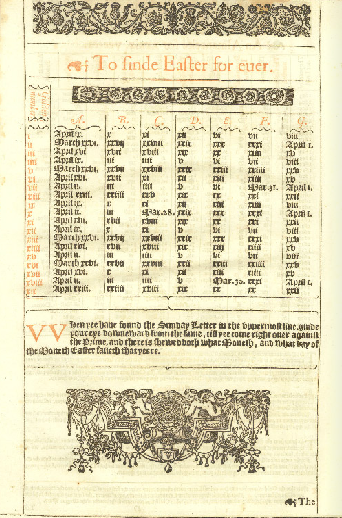

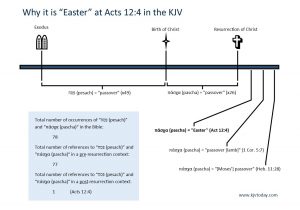
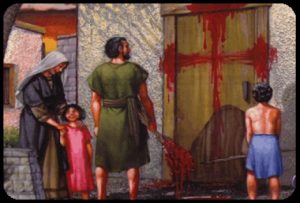
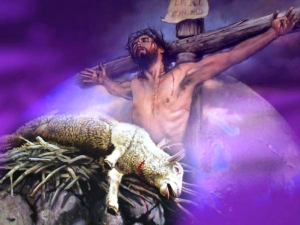
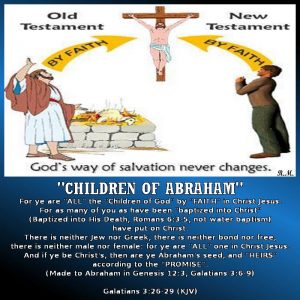
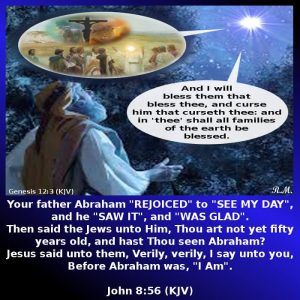
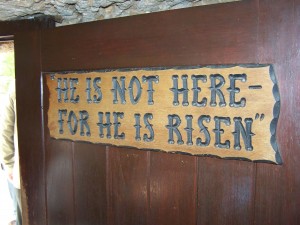

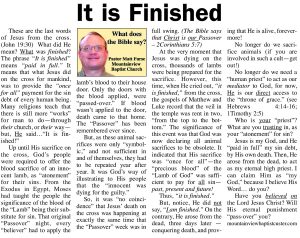
Pingback: ”Easter” is a Perfectly Legitimate Translation in Acts 12:4 — Standard Sacred Text.com – Webbplatsrubriksuzana monika
Pingback: Exodus and Easter — The Bible’s in My Blood – Webbplatsrubriksuzana monika